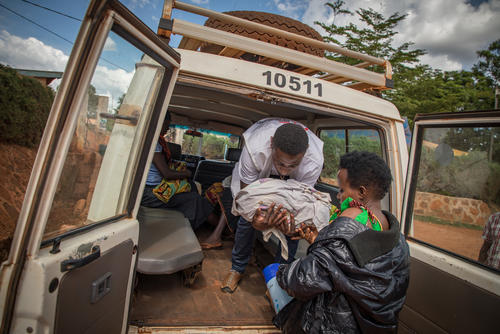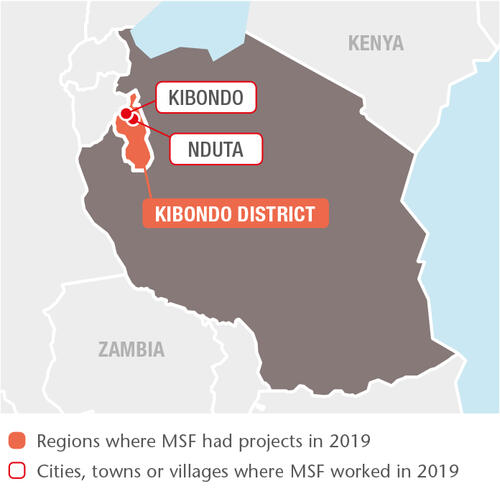
319,100
319,1
75,500
75,5
19,900
19,9

17,100
17,1
Some 167,000 Burundians remain in Tanzania despite mounting pressure on them to leave. Towards the end of 2019, a meeting of the Tripartite Commission for the Voluntary Repatriation of Burundian Refugees in Tanzania, attended by representatives of the Burundian and Tanzanian governments and the UNHCR, its signatories, reiterated the commitment to ensuring returns are voluntary.
The Burundian refugee situation remains largely forgotten and chronically underfunded in the three refugee camps in Tanzania’s northwestern Kigoma region. In 2019, Médecins Sans Frontières (MSF) continued to provide basic and specialist healthcare in Nduta, the camp hosting the largest number of Burundian refugees. We run a 150-bed hospital and four health posts in the camp and organise health promotion activities. Our services, which are also open to host communities from surrounding villages, include mother and child care, nutritional support and treatment for tuberculosis, HIV and non-communicable diseases. We also offer mental healthcare and treat victims of sexual and gender-based violence.
Mental health needs among refugees remain a key area of concern due to many compounding factors, which include the lack of access to basic services, fear of forced repatriation, limited mobility and few livelihood opportunities.
MSF also continued prevention and vector control activities to curb the spread of malaria, which is endemic in the camp.
In 2019, MSF renovated the operating theatre and sterilisation room in the nearby Kibondo district hospital, to ensure adequate surgical facilities for the referral of refugees.
We maintained our emergency response capacity. In addition to responding to a diarrhoea outbreak in Nduta camp, we supported the Ministry of Health to control a cholera outbreak in Dar es-Salaam and improve preparedness for Ebola.

















